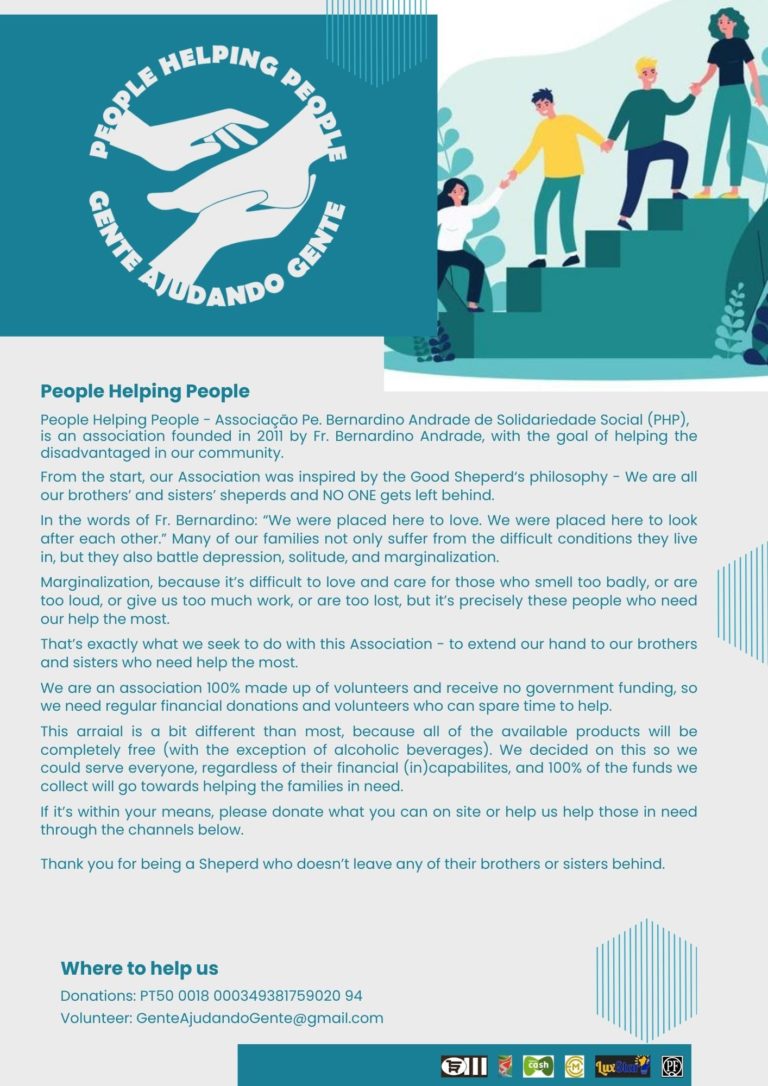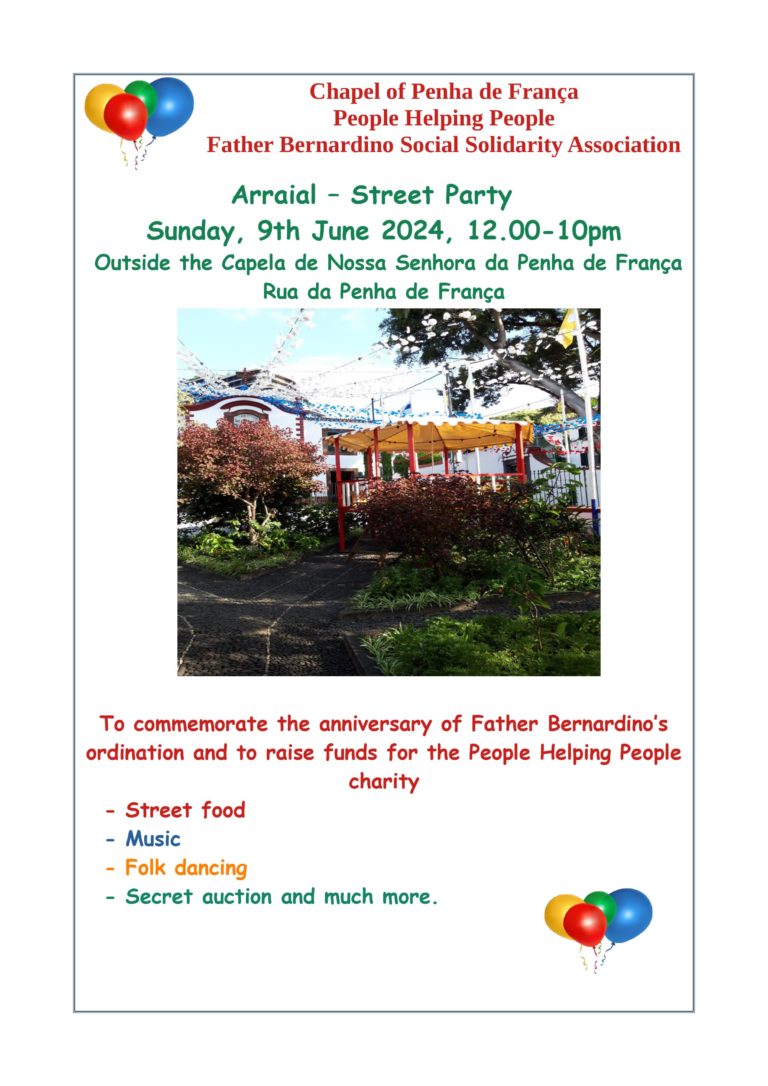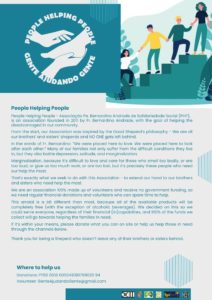People Helping People Araial / Street Party
On Sunday, 9th June, the first “People Helping People” arraial was held on the street along side the Penha da França chapel. The objectives of the function were to raise funds for the charity, dispense information about the charity to interested people attending, and generally to build a community spirit amongst the regulars at the English Mass and the organisers of the charity which was initiated by Father Bernardino Andrade, to help the most needy and marginalised in our society.
It was decided to offer the food and drinks for a voluntary donation, and our chairman, Alexandre Silva (who is also Father Bernardino’s grand nephew), made a wonderful effort in approaching various firms asking for their help. Accordingly, we would like to thank the following organisations for their generous participation:
Capela da Penha de França (Father Carlos was very helpful).
Moynihans Irish Pub (as ever a huge support with drinks, storage space and cooking of food)
Casal da Penha de França Restaurant (platter of pork and wine, etc.)
Hotel Quinta da Penha de França
Luxstar (decoration and lighting of the space and counters).
VarioSport (t-shirts, flyers, and posters)
Câmara Municipal (licensing and covering the cost of this)
J. Faria and Filhos (cane spirit, shrimp, squid and red fish)
EnoMania (wine)
Xavelha (wine)
Justino (wine and Madeira wine)
Libargel (wine)
Henriques e Henriques (Madeira wine)
Barbeito (wine)
Junta de Freguesia
Agostinho (friend who organised the grills, etc. and provided a lot of know how in organising the event).
Ruben (organisation of the musicians)
EEM
Nobrega (25% discount) on meat
Empresa de Cervejas da Madeira (2 barrels of beer and discount on remaining items).
English Team
Alina (bolo do caco, traditional candy necklaces)
and everyone in the English team especially for providing last minute items required!
Especial thanks to Alexandre Silva and all his friends and family who made this event so worthwhile.
It was a wonderful day, enjoyed by everyone who attended and we raised much needed funds for the charity as well as raising awareness of the charity in the community. The left over food was also donated to the needy families who the charity supports.


